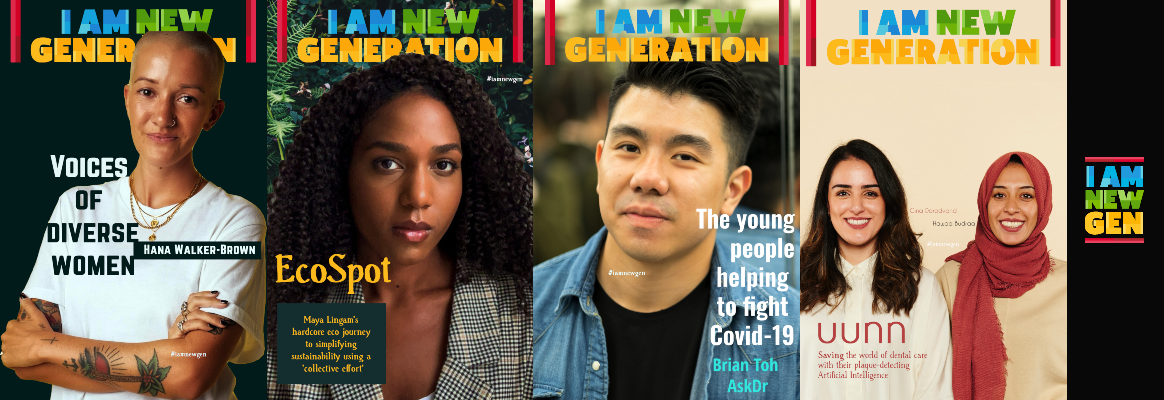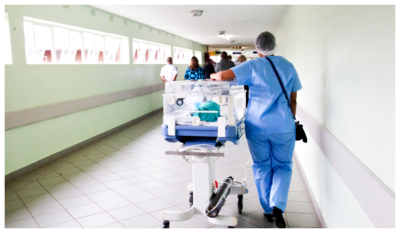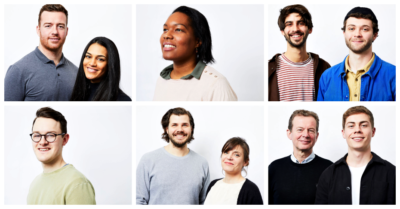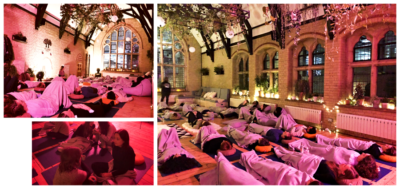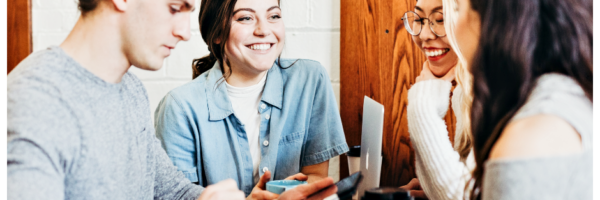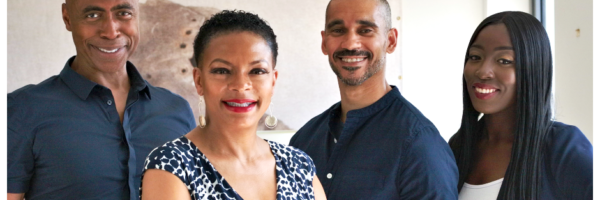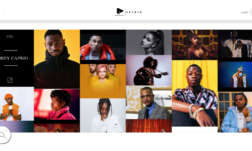As the coronavirus pandemic has spread around the world, young people working with charities, businesses, universities and grassroots community organisations have been playing their part in the fight against Covid-19.
Hanna Winter is more used to making the children in refugee camps laugh, rather than clowning around on a Zoom conference call.
But for the next month, she and three of her fellow Clowns without Borders performers are taking their act online to entertain children stuck in lockdown.
“When we go to refugee camps, the children there can’t go outside [the camp] so we bring the joy and laughter to them … sometimes you get thousands of people [young and old] turning up,” Winter says.
“This [online Clown Camp] is experimental for us – we’re dialling in from our separate homes and trying to generate that playfulness between the clowns and through the computer screen. But I’m really excited about it.”
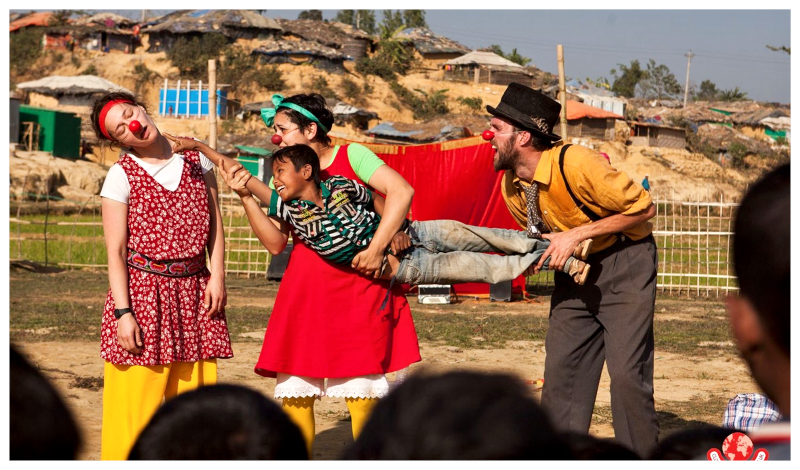
Each week, the children will also be sent an easy-to-follow pack of activities and be encouraged to put on their own clown performances at home.
Just like Winter, some are focused on providing entertainment and distraction to children who can’t see their friends.
Others are using 3D printers to make protective equipment for hospitals, designing face masks with a clear panel so the deaf and hard of hearing can lip read, cooking food for the vulnerable and raising money for local food banks.
In China, 24-year-old Xian Lu went viral after she moved to Wuhan (the city where coronavirus is thought to have originated from) and cooked more than 20,000 meals for local medical staff in just 40 days.
World Health Organization experts have lauded South Korea’s success at limiting coronavirus infections, largely because of its extensive use of testing, social distancing and technology – including smartphone alerts informing people if they’ve previously come into contact with an infected person.
One of the tools distributing government data around regional infections, deaths and recoveries has been built by a group of middle school students in Daegu.
The website and app Corona Now has had more than 15 million page views and 110,000 downloads so far.
Lead developer, 15-year-old Choi Hyoung Bin, admits he’s never done anything like this before but was inspired to get involved after noticing the amount of misinformation swirling around the pandemic: “The government was reporting accurate information but because of fake news and rumours, it wasn’t getting through to citizens.
“We decided to make an application to report information in a fast and easy way,” he explains.
The need to tackle fake news about Covid-19 also forced Brian Toh to launch his startup early.
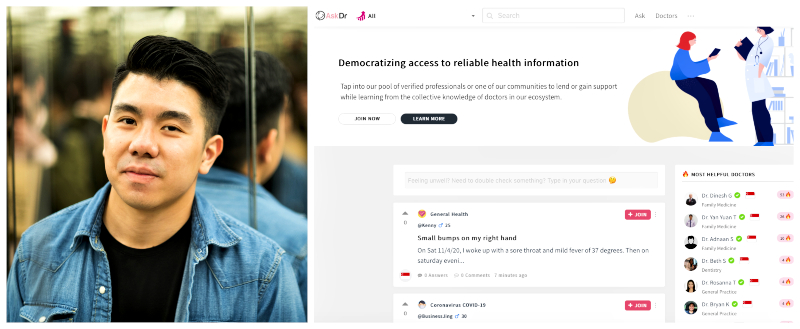
The 28-year-old Singaporean entrepreneur came up with the concept for AskDr after struggling to find reliable health information online.
He had planned a May 2020 launch, after collecting user feedback in Beta mode, but quickly reprioritised the most important fixes to turn the free platform live in February.
Since then, users from as far afield as Argentina and Chile have posted questions on the site to be answered by verified doctors.
Questions such as whether you can have Covid-19 and not have a fever; what the impact of the virus is on pregnant women; and if it’s safe to go to a public park during the lockdown.
“We just knew we had to do something,” he adds about the decision to launch early.
“We had found [in Beta] that doctors don’t have a scalable way to educate the public en masse. Especially during times like these, you can really see how misinformation can really exacerbate the situation.”
As rumours spread of an imminent lockdown, shoppers in Singapore began to panic and stockpile toilet roll and instant noodles, with similar behaviour elsewhere around the world.
Other fake news circulating via social media and private messaging forums such as WhatsApp have included dangerous claims that runny noses aren’t a symptom of the virus, that children are immune, and that the virus will die in temperatures above 27℃.
“It’s hard for government bodies and health officials to infiltrate those social mediums,” Toh explains.
“Oftentimes people spread false claims in good faith. They just want to protect their loved ones. Hopefully, something like this will help people make sure the information they have is worth spreading.
“Any entrepreneur trying to launch something, there’s always an element of nerves about whether what they’re building is going to solve an issue or really help people,” he adds.
“So I’m quite pleased to see we’re actually able to do something to help. It’s really humbling.”
In Barcelona, the founders of the Internet of Things (IoT) design and prototype agency Protofy, have created an open hardware emergency ventilator called OxyGEN.
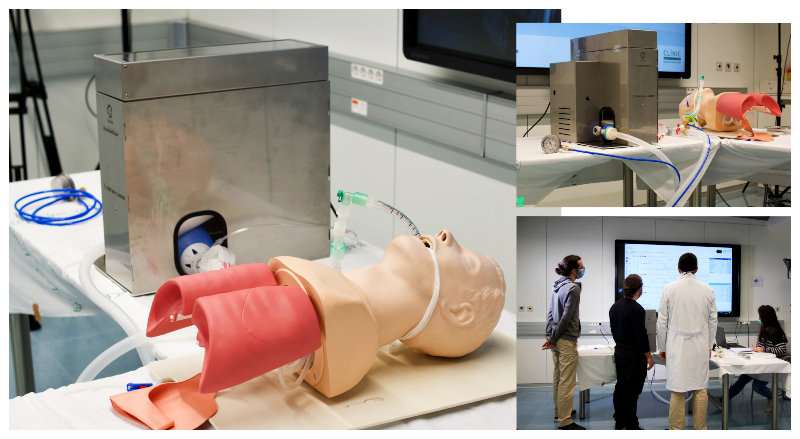
“It’s low-tech and low-cost, and the technical drawings of the device are available free of charge on our website,” 26-year-old Ignasi Plaza, one of the co-founders says.
“It has been really hectic and we have had to accelerate a process that would have probably taken us around a year to get right.
“[But] the medical community has been very keen on helping us and in just 15 days we got to a version that [after an additional week] received authorisation from the health authorities to be used with Covid-19 patients.”
It’s been an incredible journey – with more than 5,000 people worldwide collaborating on the project and around 60 different countries expressing interest in manufacturing the emergency ventilators.
In Spain, SEAT is handling the manufacturing of the devices, which are already being delivered to hospitals all over the country.
What’s driven Plaza and the team, he says, is a feeling of duty towards society.
“We knew what the potential impact of the virus could be and we had the capacity and the right tools to do something about it. We are in a critical situation and I really feel that in order to defeat this virus, we need to support each other and work together.”
Written By: Emma Sheppard – a freelance journalist and editor covering business sectors, current affairs, lifestyle and travel – @Emmalousheppard
Images Copyright – Images supplied by the interviewees / I Am New Generation Magazine
More Stories
The next generation inventors ‘creating’ to fix our health and the planet
Rapitation – a new concept using Rap music and Poetry to promote mental health fitness
